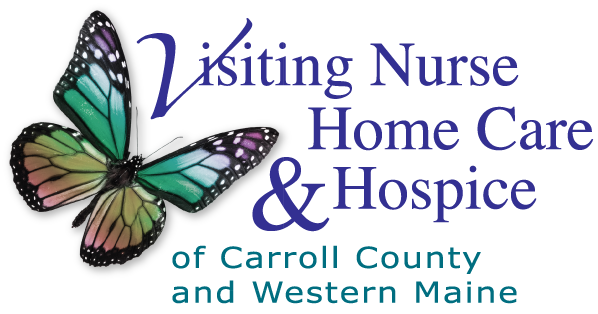In the News
Hospice Wish Fulfillment Program Gives Patients Ability to Heal the Soul
March 25, 2024
)
Visiting Nurse Home Care & Hospice of Carroll County and Western Maine (VNHCH) hospice services help those who want to remain at home for end-of-life care. This includes services from an interdisciplinary team of nurses, medical social workers, home health aides, hospice physicians, pharmacists, primary care providers, occupational therapists, and volunteers who work together to […]
Applications Now Being Accepted for the 2024 Kathleen Sheehan Memorial Scholarship
March 19, 2024
)
Applications for the 2024 Kathleen Sheehan Memorial Scholarship are now being accepted through May 30, 2024. This $1,000 scholarship award is given each year to a college student currently enrolled in an accredited health-related field of study program focusing on nursing, physical therapy, or occupational therapy. The student must reside in Carroll County, NH or […]
Caregiving Resources in the Mt. Washington Valley
February 25, 2024
)
According to AARP, family caregivers spend a lot of time caring for family, neighbors and friends — an average of 24 hours of care per week, studies show. For some, it’s a full-time job. Although it may truly be a labor of love, the truth is, family caregivers often feel invisible, alone and unappreciated. The […]
It’s a New Year – Time to Update Your Advance Care Directives
January 23, 2024
)
January is a time for making resolutions and creating good habits for the new year. Consider this good habit – making an annual review of your advance care directives. If you haven’t looked at yours for a while, or if you haven’t created one, now is a great time to refresh advance care planning. All […]
November is Home Care & Hospice Month
October 27, 2023
)
Public Invited to Open House at VNHCH Headquarters on November 8 November is Home Care & Hospice Month. Every year, the home care and hospice community honors the millions of nurses, home care aides, therapists, and social workers who make a remarkable difference for the patients and families they serve. These heroic caregivers play a […]
2023 MWV Caregiver Expo Offered by Visiting Nurse Homecare & Hospice
October 13, 2023
)
Speakers, Workshops and Resources Offered at Free Event Visiting Nurse Home Care and Hospice of Carroll County (VNHCH) in partnership with Memorial Hospital is once again offering the MWV Caregiver Expo, on Saturday, October 28, 2023, from 9am – 3pm. The event will be held at the Education Suite at Memorial Hospital, which is located […]
Tamara Sayers Awarded VNHCH’s Kathleen Sheehan Memorial Scholarship
August 8, 2023
)
CONWAY, NH – Visiting Nurse Homecare and Hospice of Carroll County announced they have awarded Tamara Sayers of Tamworth the 2023 Kathleen Sheehan Memorial Scholarship. Sayers serves as LNA for the agency and is now working on her nursing degree at White Mountain Community College to become an LPN (Licensed Practical Nurse). The $2,000 scholarship […]
Hospice Volunteer Information Sessions Offered June 15-17 by VNHCH
June 2, 2023
)
NORTH CONWAY, NH – Have you ever thought about volunteering for hospice but weren’t sure if it was right for you? Visiting Nurse Home Care and Hospice of Carroll County and Western Maine (VNHCH) invites you to explore how to become a hospice volunteer at one of three volunteer information sessions taking place throughout Mount […]
Understanding the Value of Nursing
May 24, 2023
)
NORTH CONWAY, NH – National Nurses Week takes place May 6 – 12. It’s a special time set aside to thank nurses for their tireless hard work. National Nurses Week ends on May 12, which is the birthday of Florence Nightingale, known as the founder of modern nursing. In her new book about the history […]
Social Work Helps Guide the Way for Palliative Care and Hospice Services
March 24, 2023
)
When people think of “social workers” they may think of someone who provides talk therapy, who connects clients with community resources, or who might help create a treatment plan. Social workers do this and more, especially when they are part of an interdisciplinary team like the one at Visiting Nurse Home Care and Hospice of […]
VNHCH Recognizes US National Caregivers Day
February 10, 2023
)
Visiting Nurse Home Care and Hospice of Carroll County and Western Maine (VNHCH) wants to shed light on the hard work and dedication of caregivers on February 17, 2023, US National Caregivers Day. The day honors individuals who selflessly provide personal care, and physical and emotional support to those who need it most. Jennifer Grise, […]
